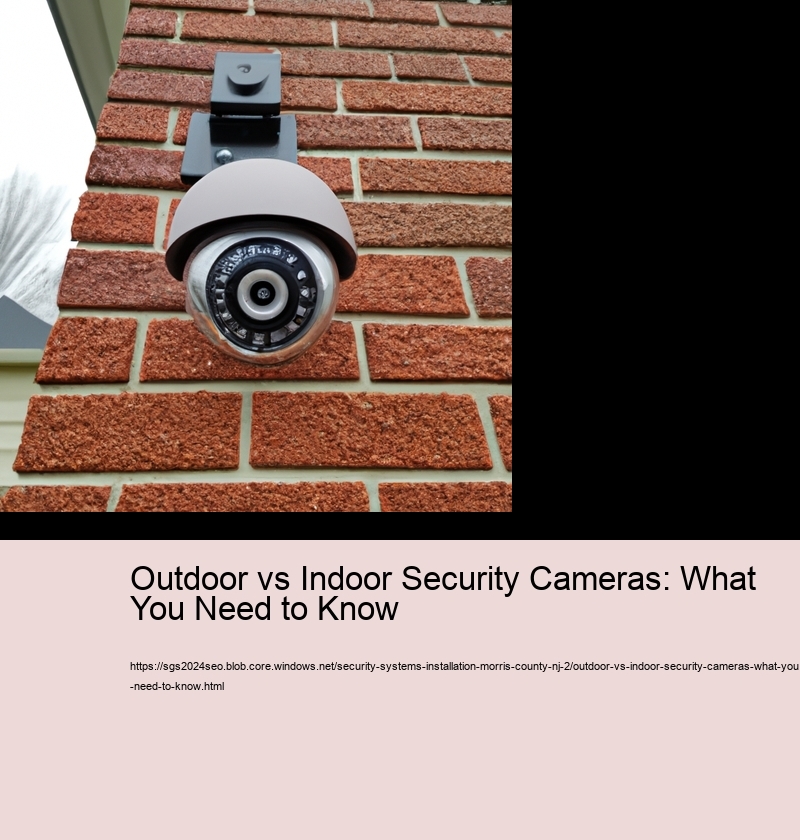Outdoor vs Indoor Security Cameras: What You Need to Know
When it comes to safeguarding your home, security cameras play a crucial role in deterring intruders and providing peace of mind. Common Mistakes to Avoid During Security System Installation . With advancements in technology, the market offers a plethora of options, primarily categorized into outdoor and indoor security cameras. Understanding the differences and benefits of each type can help homeowners make informed decisions to enhance their security systems effectively.
Outdoor Security Cameras:
Outdoor security cameras are designed specifically to withstand the elements, making them ideal for monitoring the exterior of your property. These cameras are often equipped with weather-resistant features, such as waterproof casings and durable materials, ensuring they function seamlessly in rain, snow, or extreme temperatures. Their robust construction is complemented by features tailored to outdoor surveillance.
One of the primary advantages of outdoor cameras is their wide field of view. Typically installed at strategic points around a property-like entrances, driveways, and yards-these cameras provide expansive coverage, allowing homeowners to monitor large areas with fewer devices. Moreover, many outdoor cameras come with night vision capabilities, enabling them to capture high-quality footage even in total darkness. Some advanced models also offer motion detection and spotlight features, which can alert homeowners to any unusual activity while illuminating the vicinity to scare off potential intruders.
Outdoor cameras often include high-resolution imaging and zoom functionalities, ensuring that any recorded footage is clear and detailed. This can be particularly useful for identifying faces or license plates in the event of a security breach. Additionally, the presence of visible outdoor cameras can act as a powerful deterrent, discouraging criminals from targeting your home in the first place.
Indoor Security Cameras:
Indoor security cameras, on the other hand, are engineered to monitor the interior spaces of your home. These cameras are generally more compact and aesthetically pleasing, designed to blend seamlessly with home décor without drawing attention. Indoor cameras are perfect for keeping an eye on specific areas such as living rooms, nurseries, or hallways, providing a sense of security when you're away from home.
A significant advantage of indoor cameras is their ability to capture high-quality audio and video, making them ideal for monitoring interactions within the home. This can be particularly beneficial for parents who want to keep an eye on their children or caregivers, or for pet owners who wish to check in on their furry friends during the day. Many indoor cameras offer two-way audio, allowing homeowners to communicate directly through the camera, whether to ward off an intruder or simply to speak to family members.
Indoor cameras are also often equipped with features like motion detection and mobile alerts. These functionalities ensure that homeowners are immediately notified of any unusual activity, allowing them to respond promptly. Additionally, some models offer cloud storage options, providing a secure way to store and review footage over time.
Choosing the Right Camera for Your Needs:
When deciding between outdoor and indoor security cameras, it's essential to consider your specific security needs and goals. For comprehensive protection, many homeowners opt for a combination of both types, creating a layered security system that covers all potential entry points and vulnerable areas.
Budget is another critical factor. Outdoor cameras tend to be more expensive due to their durability and advanced features. However, investing in high-quality outdoor surveillance can be a worthwhile expenditure if it prevents costly incidents like break-ins or vandalism. Conversely, indoor cameras are typically more affordable and easier to install, making them an attractive option for those looking to enhance their home security without breaking the bank.
Ultimately, the decision should be based on your individual circumstances, including the size of your property, your security priorities, and your budget. By understanding the unique benefits of outdoor and indoor security cameras, homeowners can create a tailored security system that provides peace of mind and protection for their families and belongings.
